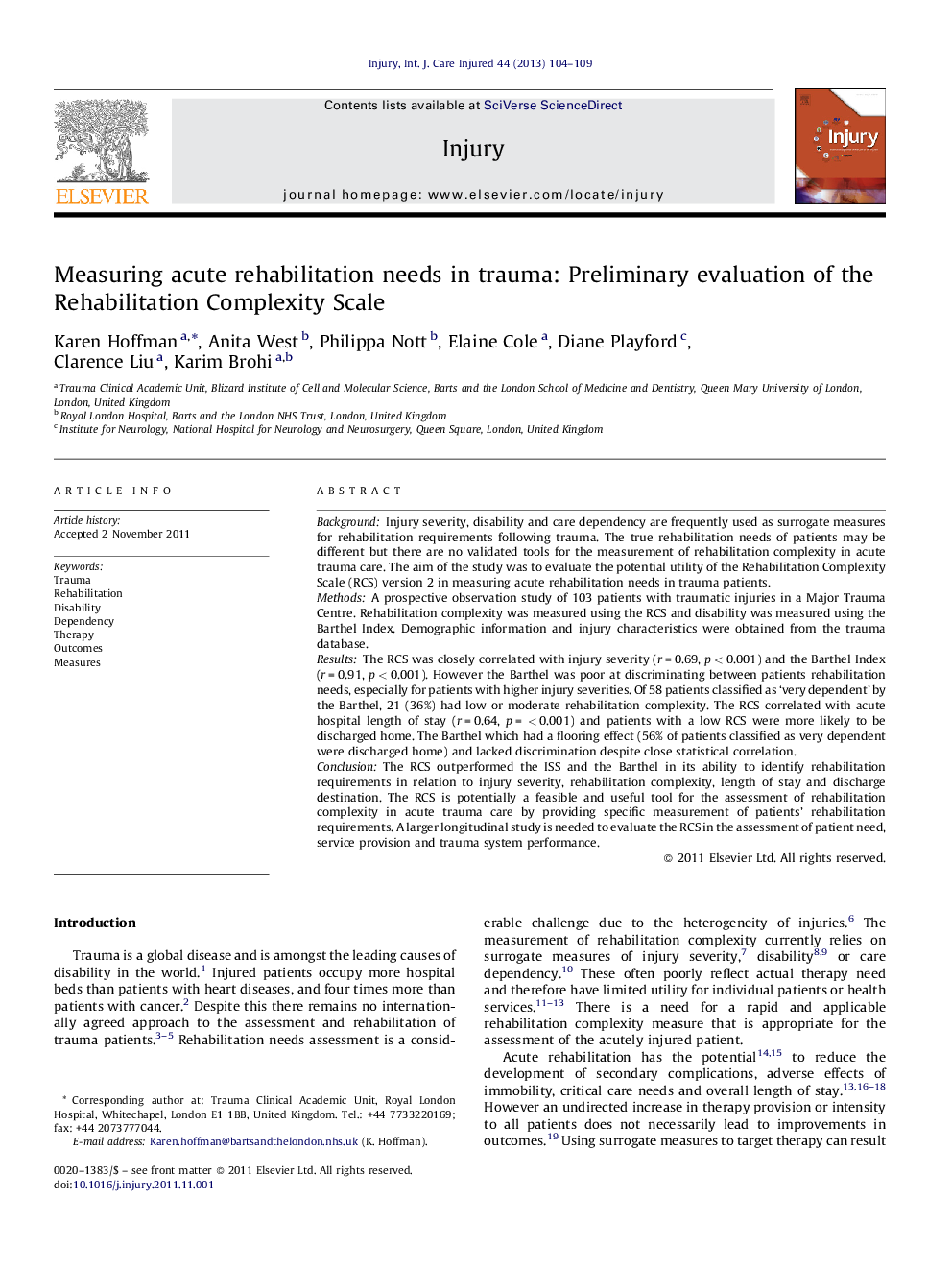| Article ID | Journal | Published Year | Pages | File Type |
|---|---|---|---|---|
| 6084411 | Injury | 2013 | 6 Pages |
BackgroundInjury severity, disability and care dependency are frequently used as surrogate measures for rehabilitation requirements following trauma. The true rehabilitation needs of patients may be different but there are no validated tools for the measurement of rehabilitation complexity in acute trauma care. The aim of the study was to evaluate the potential utility of the Rehabilitation Complexity Scale (RCS) version 2 in measuring acute rehabilitation needs in trauma patients.MethodsA prospective observation study of 103 patients with traumatic injuries in a Major Trauma Centre. Rehabilitation complexity was measured using the RCS and disability was measured using the Barthel Index. Demographic information and injury characteristics were obtained from the trauma database.ResultsThe RCS was closely correlated with injury severity (r = 0.69, p < 0.001) and the Barthel Index (r = 0.91, p < 0.001). However the Barthel was poor at discriminating between patients rehabilitation needs, especially for patients with higher injury severities. Of 58 patients classified as 'very dependent' by the Barthel, 21 (36%) had low or moderate rehabilitation complexity. The RCS correlated with acute hospital length of stay (r = 0.64, p =  < 0.001) and patients with a low RCS were more likely to be discharged home. The Barthel which had a flooring effect (56% of patients classified as very dependent were discharged home) and lacked discrimination despite close statistical correlation.ConclusionThe RCS outperformed the ISS and the Barthel in its ability to identify rehabilitation requirements in relation to injury severity, rehabilitation complexity, length of stay and discharge destination. The RCS is potentially a feasible and useful tool for the assessment of rehabilitation complexity in acute trauma care by providing specific measurement of patients' rehabilitation requirements. A larger longitudinal study is needed to evaluate the RCS in the assessment of patient need, service provision and trauma system performance.
